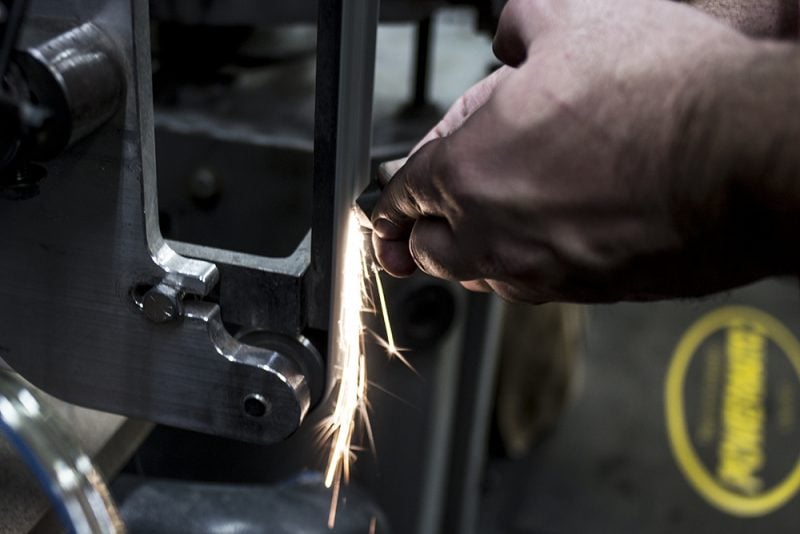Charlie Brumfield was an old-school Dungeons and Dragons player looking for a gift for some of his gaming buddies when he decided to start up Artisan Dice. “Within 48 hours I found myself in the dice-making business,” Brumfield says. “Our first day in business I built a website, put it up Sunday night, and by 6:00 AM Monday morning we had $1700 in sales. It’s been rockin’ and rollin’ ever since.”
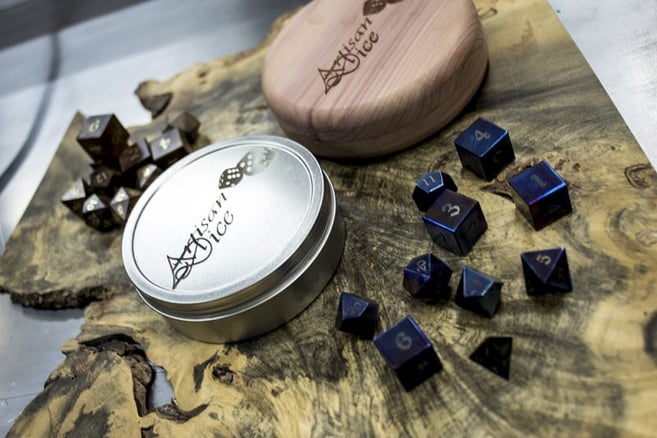
After two successful Kickstarter campaigns, Brumfield bought a PCNC 1100 and a PCNC 770 to start production work. “We went with the Tormach because a fully kitted out machine was about $30,000. I got the PCNC 1100 and the PCNC 770 with every option that Tormach had at the time.” Brumfield actually has a background in web design and photography. In fact, he ran a sporting goods store before launching Artisan Dice. “I’m not a machinist by trade, I’m not a woodworker by trade,” he explains. “With my skillset and background, it becomes a lot easier to take a product to market, as long as you also have the skills to then make that product. I’ve become a kind of jack of all trades, master of none.”
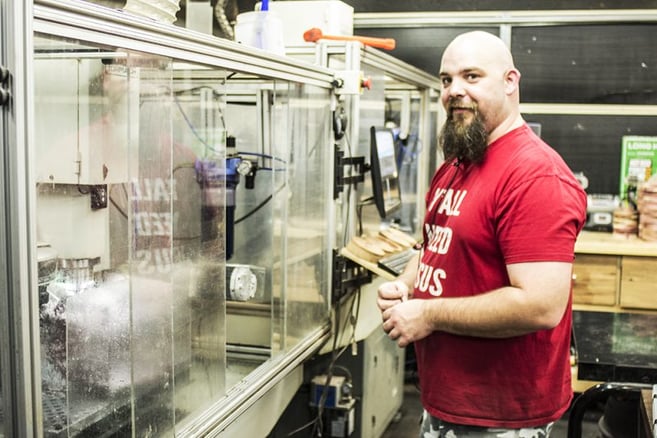
With no real machine experience, Brumfield immediately found a learning curve when it came to things like speeds and feeds. “When we started out, I would destroy an end mill every five or six titanium D20s we made. Now, we can run one end mill a week – week and a half – running eight hours on these machines. “ Once he figured out how to cut and hold 20-sided dice, he looked to making his small shop more production oriented. “A big thing for us was once we figured out how to make these things, was how do we get fast? One of the challenges after doing the Kickstarter was figuring out how to be a production shop, because we weren’t at the time. That was our biggest learning curve.”
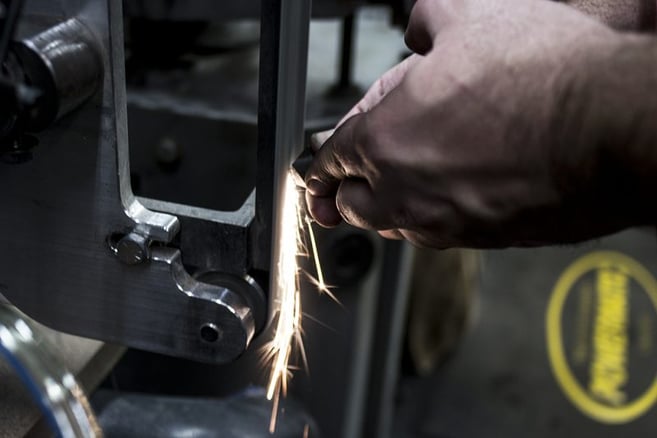
Read: Milling Exotic Materials with Behemoth and Colossus “What we do on the CNC machines, we mix that with old-world craftsmanship,” Brumfield continues. “When we say hand-crafted dice… every face of every die is hand-ground by myself or one of the minions.” Artisan Dice utilizes both their Tormach machines for metal production, but they also use several smaller CNCs to mill out the numerous orders for wood dice. Now, they provide close to 250 different material options for dice.
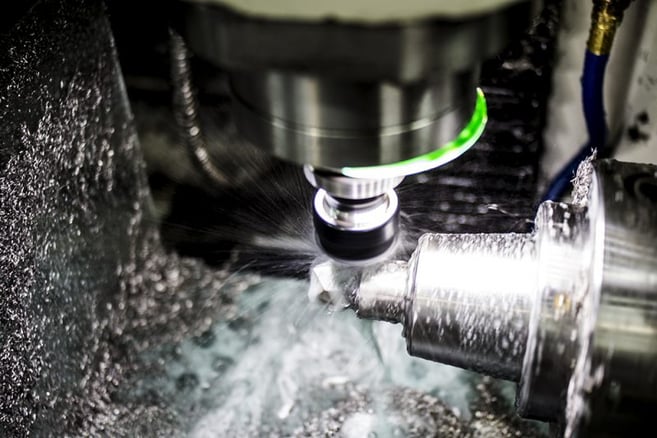
While Artisan Dice has quickly grown, and continues to produce, they started out as a very small shop. “Tormach talks about how this is the machine for the maker in his garage, yeah these are those machines. We broke end mills while learning, but we didn’t hurt the machine. If you crash a larger machine, grab your pocket book, it’s going to be $10,000 or more.” Even after more than 15 years of gaming and several years of dice production, Brumfield still finds plenty of time to play and develop new variations on his products. “We’re always trying to better ourselves. What was good enough yesterday, is not good enough today.” Check out Artisan Dice
